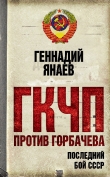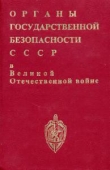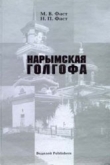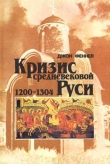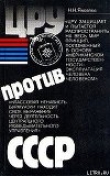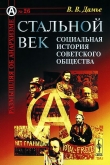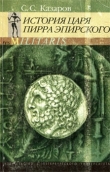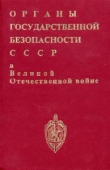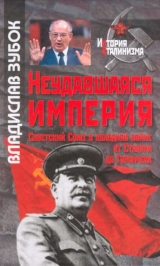
Текст книги "Неудавшаяся империя: Советский Союз в холодной войне от Сталина до Горбачева"
Автор книги: Владислав Зубок
Жанр:
История
сообщить о нарушении
Текущая страница: 50 (всего у книги 64 страниц)
Understanding the End of the Cold War, 1980-1987/ Ed. Tannenwald N. An Oral History Conference, Brown University, Providence, R. I., May 1999.
Ungvary K. The Siege of Budapest: One Hundred Days in World War II. New Haven, Conn.: Yale University Press, 2005.
Uprising in East Germany, 1953: The Cold War, The Germany Question, and the First Major Upheaval behind the Iron Curtain / Ed. C. Ostermann. Budapest: Central University Press, 2001.
Vaksberg A. Stalin's Prosecutor: The Life of Andrei Vyshinsky. N. Y.: Grove Press, 1991.
Varsori A. Le government Eden et l'Union Sovetique, 1955-1956: de l'dspoir a la disillusion // Relations Internationales 71 (Autumn 1992).
Venona Historcal Monograph № 3. Fort Mead, Md.: National Security Agency, March 1996.
Voinovich V. The Life and Extraordinary Adventures of Private Ivan Chonkin. Translated by Richard Lourie. Chicago: Northwestern University Press, 1995.
Volkogonov D. Stalin: Triumph and Tragedy. N. Y.: Prima Lifestyles, 1996.
Volkov A., Kolesova M. Soviet Reaction to U. S. Nuclear Policy (1953-1962) // Paper presented at the conference «The New Evidence on the Cold War». Moscow, January 12-15, 1993.
Volkov V. German Question as Stalin Saw It, 1947-1952 // Paper presented at the conference «Stalin and the Cold War». Yale University, New Haven, Conn., September 24-25,1999.
Volksarmee schaffen – ohne Geschrei! Studien zu den Anfangen einer verdeckten Aufrustung in der SBZ/DDR, 1947-1952 / Hg. B. Thoss. Munich: R. Oldenbourg Verlag, 1995.
War and Diplomacy: The Making of the Grand Alliance: Documents from Stalin's Archives / Ed. O. Rzheshevsky. Amsterdam: Harwood Academic, 1996.
Weart S. R. Nuclear fear: A History of Images. Cambridge, Mass.: Harvard University Press, 1988.
Weatherby K. Should We Fear This? Stalin and the Danger of War with America // CWIHP working paper № 39. Washington, D. C: Woodrow Wilson International Center for Scholars, July 2002.
Weatherby K. Soviet Arms in Korea and the Origins of the Korean War, 1945-1950: New Evidence from Russian Archives // CWIHP working paper № 8 / Washington, D. C: Woodrow Wilson International Center for Scholars, November 1993.
Weatherby K. To Attack or Not to Attack: Stalin, Kim II Sung, and the Prelude to War // CWIHP Bulletin, № 5 (1995).
Weinberger С In the Arena: A Memoir of the 20th Century. Washington, D. C: Regnery, 2001.
Weiner A. Making Sense of War: The Second World War and the Fate of the Bolshevik Revolution. Princeton, N. J.: Princeton University Press, 2001.
Weinstein A., Vasiliev A. The Haunted Wood: Soviet Espionage in America – The Stalin Era. N. Y.: Random House, 1999.
Weisgall J. M. Operation Crossroads'. The Atomic Tests at Bikini Atoll. Annapolis, Md.: Naval Institute Press, 1994.
Werblan A. The Conversation between Wladyslaw Gomulka and Joseph Stalin // CWIHP Bulletin, № 11 (1998).
Werth A. Russia at War, 1941-1945. L.: Pan Books, 1964.
Westad O. A. Brothers in Arms: The Rise and Fall of the Sino-Soviet Alliance, 1945-1963. Washington, D. C: Woodrow Wilson Center Press; Stanford, Califf.: Stanford University Press, 1998.
Westad O. A. Cold War and Revolution: Soviet-American Rivalry and the Origins of the Chinese War, 1944-1946. N. Y.: Columbia University Press, 1993.
Westad O. A. Decisive Encounters: The Chinese Civil War, 1946-1950. Stanford, Calif: Stanford University Press, 2003.
Westad O. A. The Fall of the Detente and the Turning Tides of History // The Fall of Ddtente: Soviet-American Relations during the Carter's Years / Ed. O. A. Westad. Oslo: Scandinavian University Press, 1997.
Westad O. A. The Global Cold War: Third World Interventions and the Making of Our Times. N. Y.: Cambridge University Press, 2005.
Westad O. A. Moscow and the Angolan Crisis, 1974-1976: A New Pattern of Intervention // CWIHP Bulletin, № 8-9 (Winter 1996/97).
Westad O. A. Prelude to Invasion: The Soviet Union and the Afghan Communists, 1978-1979 // International History Review 16, № 1 (Canada) (February 1994).
Westad O. A. The road to Kabul: Soviet Policy on Afghanistan, 1978-1979 // The Fall of Detente: Soviet-American Relations during the Carter Years / Ed. O. A. Westad. Oslo: Scandinavian University Press, 1997.
Westad O. A. Secrets of the Second World: The Russian Archives and the Reinterpretation of the Cold War History // Diplomatic History 21 (Spring 1997).
Wetting G. Die befinnende Umorientierung der sowjetichen Deutschland-Politik im Fruhjahr und Sommer 1953 // Deutschland Archiv 28, № 5 (May 1995).
Wetting G. Bereitschaft zu Einheit in Freiheit? Die Sowjetische Deutschland-Politik, 1945-1955. Munich: Olzog, 1999.
Wetting G. Die Stalin-Note vom 10 Marz: Antwort auf Elke Scherstjanoi // Deutschland Archiv 25 (August 1992).
Wetting G. Zum Stand der Forschung uber Berijas Deutschland-Politik // Deutschland Archiv 26 (1993).
Wilhelm Pieck: Aufzeichnungen zur Deutchlandpolitik, 1945-1953 / Hg. R. Badstubner, W. Loth. Berlin: Academie-Verlag, 1994.
Whitfield S. The Culture of the Cold War. Baltimore: John Hopkins University Press, 1991.
Wingrove P. Mao's Conversation with the Soviet Ambassador, 1953-1956 // CWIHP work paper № 36 (April 2002).
Wittner L. S. Resisting the Bomb: A History of the World Nuclear Disarmament Movement, 1954-1970. Stanford, Calif.: Stanford University Press, 1997.
Wittner L. S. Toward Nuclear Abolition: A History of the World Nuclear Disarmament Movement, 1971 to the Present. Stanford, Calif.: Stanford University Press, 2003.
Wohlforth W. С. The Elusive Balance: Power and Perceptions during the Cold War. Ithaca, N. Y.: Cornell University Press, 1993.
Wohlforth W. C. Realism and the End of the Cold War // International Security 19 (Winter 1994/95).
Wolff D. To the Harbin Station: The Liberal Alternative in Russian Manchuria, 1898-1914. Stanford, Calif.: Stanford University Press, 1999.
Woll J. Real Images: Soviet Cinema and the Thaw. N. Y.: I. B. Tauris, 2000.
Yanov A. The Russian New Right. Berkeley: University of California Press, 1978.
Yaroshinska A. Chernobyl: The Forbidden Truth. Lincoln: University of Nebraska Press, 1995.
Yegorov V. Out of a Dead End into the Unknown: Notes on Gorbachev's Perestroika. Chicago: Edition 9,1993.
York H. F. The Advisors: Oppenheimer, Teller, and the Superbomb. Stanford, Calif.: Stanford University Press, 1989.
Yurchak A. Everything Was Forever, Until It Was No More: The Last Soviet Generation. Princeton, N. J.: Princeton University Press, 2006.
Zaloga S. The Kremlin's Nuclear Sword: The Rise and of Russia's Strategic Nuclear Forces, 1945-2000. Washington, D. C: Smithsonian Institution Press, 2002.
Zaslavsky V. Collapse of Empires: The Soviet Union // After Empire / Ed. K. Barkley, M. Hagen. Boulder, Colo.: Westview, 1997.
Zaslavsky V.Nationalismand Democratic Transition in Postcommunist Societies// Daedalus (Spring 1992).
Zaslavsky V. The Neo-Stalinist State: Class, Ethnicity, and Consensus in Soviet Society. Armonk, N. Y.: M. E. Sharpe, 1982.
Zaslavsky V. Lo Stalinismo e la Sinistra Italiana. Dal mito dell'Urss alia fine del communismo 1945-1991. Rome: Mondadori, 2004.
Zelikow P., Rice С Germany Unified and Europe Transformed: A Study in Statecraft. Cambridge, Mass.: Harvard University Press, 1995.
Zhang Shuguang and Chen Jian. The Emerging Disputes between Beijing and Moscow: Ten Newly Available Chinese Documents, 1956-58 // CWIHP Bulletin, № 6-7 (Winter 1995).
Zubkova E. The Rivalry with Malenkov // Nikita Khrushchev: Fresh Perspectives on the last Communist / Ed. W. Taubman, S. Khrushchev, A. Gleason. New Haven, Conn.: Yale University Press, 2000.
ZubkovaE. Russiaafterthe War: Hopes, Illusions, and Disappointments, 1945-1957. Translated by Hugh Ragsdale. Armonk, N. Y.: M. E. Sharpe, 1998.
Zubok V. M. CPSU Plenums, Leadership Struggles, and Soviet Cold War Politics // CWIHP Bulletin, № 10 (March 1998).
Zubok V. M. Inside the Covert Cold War. The KGB vs CIA, 1960-1962 // CWIHP Bulletin, № 4 (Fall 1994).
Zubok V. M. The Khrushchev-Mao Conversations, 31 July-3 August 1958 and 2 October 1959 // CWIHP Bulletin, № 12-13 (Fall/Winter 2001).
Zubok V. M. Khrushchev's 1960 Troop Cut: New Russian Evidence // CWIHP Bulletin, № 8-9 (Winter 1996/1997).
Zubok V. M. «Look What Chaos in the Beautiful Socialist Camp!» Den Xiaoping and the Sino-Soviet Split, 1956-1963 // CWIHP Bulletin, № 10 (March 1998).
Zubok V. M. The Multi-Level Dynamics of Moscow's German Policy from 1953 to 1964 // Re-Viewing the Cold War: Domestic Factors and Foreign Policy in the East-West Confrontation / Ed. P. M. Morgan, K. L. Nelson. Westport, Conn.: Praeger, 2000.
Zubok V. M. Soviet Foreign Policy in Germany and Austria and the Post-Stalin Succession Struggle, 1953-1955 // Paper prepared at the conference «The Soviet Union, Germany, and the Cold War, 1945-1962: New Evidence from Eastern Archives». Essen, Germany, June 28-30, 1994.
Zubok V. Soviet Intelligence and the Cold War: The «Small» Committee of Information, 1952-1953 // Diplomatic History 19, № 3 (Summer 1995).
Zubok V. «To Hell with Yalta!»: Stalin Opts for a New Status Quo // CWIHP Bulletin, № 6-7 (Winter 1995/96).
Zubok V. «Unverfroren und grob in der Deutschlandfrage»: Berija, der Nachfolgestreit nach Stalins Tod und die Moskauer DDR-Debatte im April – Mai 1953 //1953 – Krisenjahr des Kalten Krieges in Europa / Hg. Ch. Klessmann, B. Strover. Cologne: Bohlau, 1999.
Zubok V. M., Harrison H. The Nuclear Education of Nikita Khrushchev // Cold War Statesmen Confront the Bomb / Hd. J. L. Gaddis, P. H. Gordon, E. R. May, J. Rosenberg. L.: Oxford University Press, 1996.
Zubok V. M., Pleshakov C. Inside the Kremlin's Cold War: From Stalin to Khrushchev. Cambridge, Mass.: Harvard University Press, 1996.
Zubok V. M., Pleshakov C. The Soviet Union // The Origins of the Cold War in Europe / Ed. D. Raynolds, 53-76. New Haven: Yale University Press, 1994.
Zubok V. M., Smirnov Y. Moscow and Nuclear Weapons after Stalin's Death // CWIHP Bulletin, № 4 (1994).
ИЛЛЮСТРАЦИИ

На советской карикатуре 1949 г. Гарри Трумэн и Уинстон Черчилль изображены как вдохновители создания НАТО. За ними прячутся зловещие фигуры поджигателей войны из Пентагона

Иосиф Сталин и его будущий разоблачитель Никита Хрущев на трибуне Мавзолея Ленина (1949 или 1950 г.)

Никита Хрущев, Анастас Микоян и Георгий Маленков идут на работу в Кремле (1954 г.)

Вооружен и опасен. Хрущев любил рисковать в международной политике, но еще больше любил охоту

Военачальники сверхдержавы. Правительственный прием в честь первого космонавта Юрия Гагарина в апреле 1961 г. Слева направо: Ю. А. Гагарин, министр обороны СССР маршал Родион Малиновский (за Гагариным), маршал Андрей Гречко, Н. С. Хрущев, начальник Генерального Штаба вооруженных сил СССР маршал Матвей Захаров, командующий Ракетными войсками стратегического назначения маршал Кирилл Москаленко, маршал Василий Соколовский (?) и командующий войсками Московского округа ПВО Павел Батицкий

Хрущев был неутомимым путешественником и приоткрыл железный занавес. Советская пресса называла его борцом за мир

Леонид Брежнев на Параде Победы на Красной площади 24 июня 1945 г. После парада он участвовал в кремлевском банкете, где тамадой был Сталин. Двадцать лет спустя, став генеральным секретарем ЦК КПСС, Брежнев продолжал восхищаться «вождем народов»

Брежнев говорил: «Обаяние – это очень важный фактор в политике». Он практиковал этот принцип от души, пока позволяло здоровье

Митинг на советском предприятии после советско-китайского пограничного инцидента на острове Даманский в марте 1969 г. Еще десять лет назад эти люди пели: «Русский с китайцем – братья на век»

Разрядка» при Брежневе происходила не только в международных отношениях. Генеральный секретарь и Эгон Бар, советник канцлера Федеративной республики Германия, расслабляются в охотничьем хозяйстве Завидово

Прощание «старой гвардии». Михаил Горбачев и старцы из Политбюро на московском вокзале (1981 или 1982 г.). В первом ряду слепа направо: Михаил Горбачев, Андрей Громыко, Николай Тихонов, Леонид Брежнев, Михаил Суслов, Михаил Соломенцев, Константин Черненко, Юрий Андропов, Борис Пономарев, зять Брежнева Юрий Чурбанов. За спиной у Брежнева стоят Дмитрий Устинов и Виктор Гришин

Михаил Горбачев в конце 1991 г. После шести лет речей, планов и надежд он потерял и советскую империю, и свой пост

